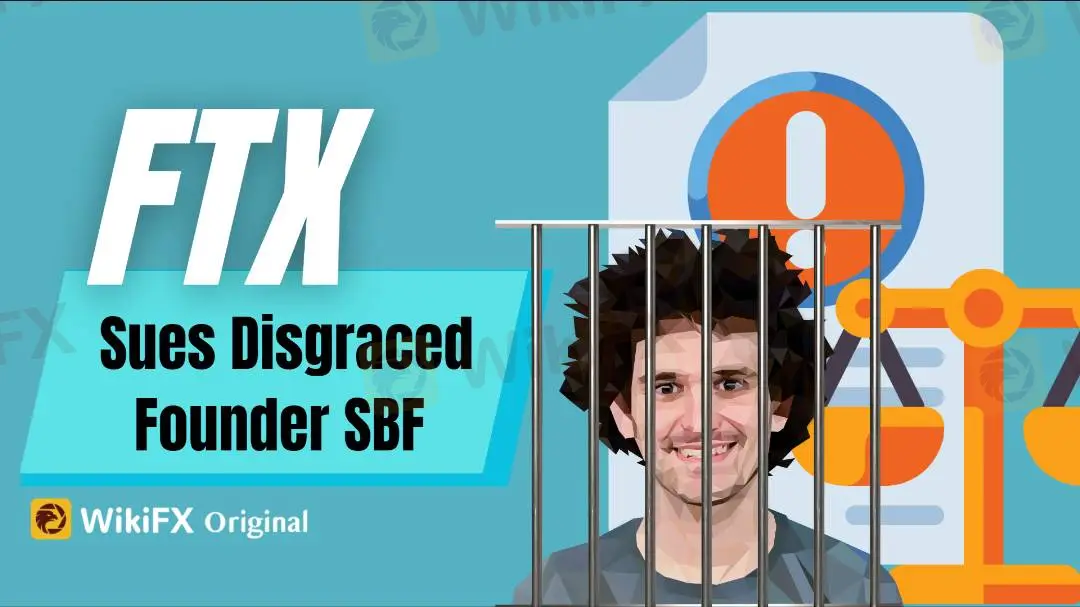简体中文
繁體中文
English
Pусский
日本語
ภาษาไทย
Tiếng Việt
Bahasa Indonesia
Español
हिन्दी
Filippiiniläinen
Français
Deutsch
Português
Türkçe
한국어
العربية
FTX Sues Disgraced Founder SBF
Abstract:In the recent lawsuit, FTX alleges that SBF and his associates misused all the funds for personal benefits and to influence politicians through lobbying, rather than utilizing them for the exchange's purposes.

On July 20, Thursday, FTX Trading launched a new lawsuit against its disgraced founder, Sam Bankman-Fried, and other former executives, aiming to recover over $1 billion from questionable transactions.
FTX filed the complaint in the Delaware bankruptcy court, naming co-founder Gary Wang, who also served as the chief technology officer, as one of the defendants. Additionally, the lawsuit includes Nisha Singh, the former director of engineering, and Caroline Ellison, the co-chief executive of Alameda Research LLC. The lawsuit alleges that these individuals were involved in fraudulent transactions that personally benefited them, rather than benefiting the exchange.
FTX has accused the defendants of consistently misappropriating funds for personal use, financing luxury condominiums, making political contributions, engaging in speculative investments, and funding various personal projects. The company alleges that these actions have led to what they describe as “one of the largest financial frauds in history.”
As an example, the complaint alleges that Bankman-Fried and Wang utilized $546 million from Alameda in May 2022 to purchase shares in Robinhood Markets Inc. They purportedly provided Alameda with fraudulent loans, which were not backed by any collateral and carried lower interest rates than standard loans. The lawsuit further states that these loans were authorized solely by Ellison.
SBF, Wang, and Singh are accused of orchestrating a scheme involving fraudulent loans to acquire stocks from FTX, amounting to an astonishing $250 million at the time of the alleged incident.
FTX On A Recovery Mode
Amidst the ongoing bankruptcy procedure, FTX is under the leadership of John Ray, who is spearheading efforts to rectify the wrongful fund transfers made by the platform and its associates.
As part of a broader strategy to repay creditors, including customers who lost cryptocurrency during the exchange's collapse in November, FTX, led by its new CEO John Ray, is pursuing lawsuits to recover funds, leveraging bankruptcy rules and Chapter 11 filing.
FTX's current board is actively planning to resume exchange operations later this year. Successful fund recovery from SBF and his associates will accelerate the process of making a comeback. While Bankman-Fried maintains his innocence regarding the criminal charges, Ellison, Wang, and Singh have pleaded guilty and are cooperating with prosecutors.

Disclaimer:
The views in this article only represent the author's personal views, and do not constitute investment advice on this platform. This platform does not guarantee the accuracy, completeness and timeliness of the information in the article, and will not be liable for any loss caused by the use of or reliance on the information in the article.
Read more

Breaking News: OmegaPro Caught in a $650 Million Forex and Crypto Investment Scam
An indictment was leveled against two men in the District of Puerto Rico for their alleged involvement in the operation and promotion of OmegaPro, an international investment scheme that has led to financial losses worth over $650 million for investors. Check more about this story

BaFin Issues Warnings Against Unauthorised Crypto and Investment Platforms
BaFin has recently flagged multiple websites, including stcwelt.com and mega-platz.pro, for offering financial and cryptoasset services without proper authorisation. Stay informed and protect your investments.

CryptoCurrency Regulations in India 2025 – Key Things You Should Know
Cryptocurrency has become a major trend in today’s world. Crypto Experts believe it’s the future, which is why many people are investing heavily in it. But before jumping in, it’s important for crypto enthusiasts to understand the key rules about cryptocurrency in India.

Global Brokers Vs. Indian Rules: Why They Struggle in India
RBI issued a warning last year against 75 forex brokers. Those brokers are globally popular and regulated in other countries, but they are banned in India. Only few brokers even have physical offices located in India. So, why do global brokers face so many challenges in entering the Indian market?
WikiFX Broker
Latest News
What is a Pip in Forex?
xChief: A Closer Look at Its Licenses
FXTRADING.com: A Closer Look at Its Licenses
New to Forex Trading in India? Here's How You Can Start and Maximize
Intel spins out AI robotics company RealSense with $50 million raise
Tom Lee's Granny Shots ETF is crushing the market and raking in cash
Risk Involved with Cabana Capital – Every Trader Should Know
XTB Hack 2025: Major Security Breach Exposes Client Accounts
Nvidia's Jensen Huang sells more than $36 million in stock, catching up with Warren Buffett in net worth
These are America's 10 weakest state economies most at risk in a recession
Currency Calculator


